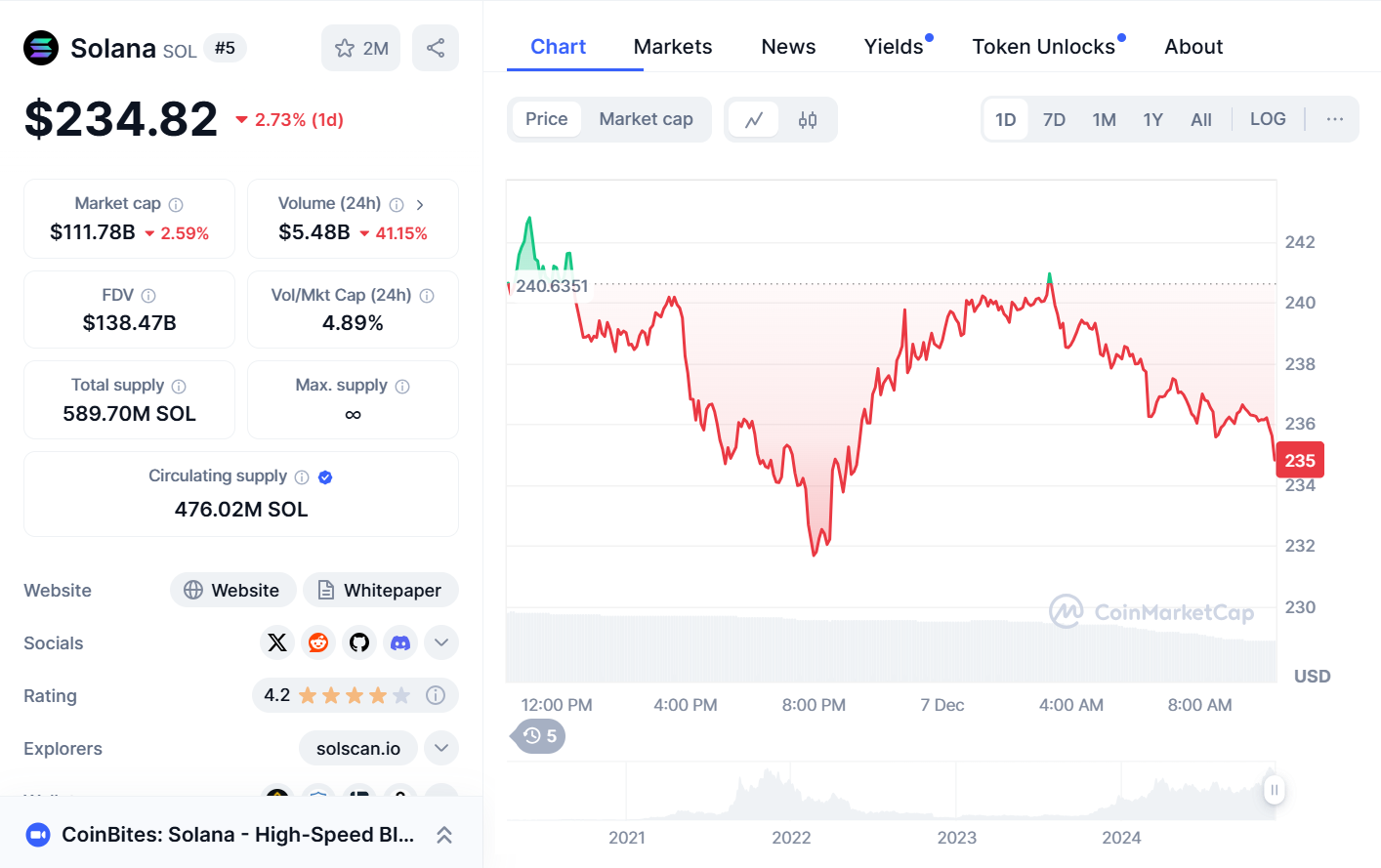The road to spot Solana exchange-traded funds (ETFs) has hit a significant hurdle as reports indicate the Securities and Exchange Commission (SEC) could delay approvals due to leadership transitions within the federal agency.
These new developments suggest that Solana ETFs may remain in limbo until the political landscape stabilizes with the potential return of Donald Trump to office in January 2025. The delay signals uncertainty in the crypto market as five major financial firms find themselves navigating regulatory roadblocks amid a shifting administration and complex agency priorities.
✍🏻 The SEC has notified at least two out of five potential #Solana ETF issuers that their applications have been rejected.
According to @EleanorTerrett of FOX Business, the consensus among regulators is that they do not intend to consider new #crypto ETFs under the current… pic.twitter.com/iu0bdf4JP8
— Mpost Media Group (@mpost_io) December 6, 2024
Delays in Spot Solana ETF Approvals
According to Eleanor Terrett from Fox Business, U.S.-based spot Solana ETF issuers have been privately informed by SEC officials that their proposals could face roadblocks. The reports suggest that the SEC will refrain from evaluating new cryptocurrency ETF applications until Trump takes office again, potentially leaving spot SOL funds stuck in a regulatory holding pattern until January 2025. This decision marks a significant setback for financial firms that had been optimistic about advancing these products.
The SEC’s move to delay comes amid the increasing political volatility surrounding U.S. policy, with the administration transition adding yet another layer of unpredictability to crypto regulations. Solana ETFs, in particular, have struggled to gain traction within the heavily regulated U.S. financial system, and these new delays are seen as yet another challenge for market participants.
Currently, five key firms have already submitted proposals for spot SOL ETFs, including VanEck, 21Shares, Bitwise, Canary Capital, and Grayscale. These companies have invested time, resources, and strategic planning into their ETF applications, only to now face significant uncertainty as the SEC slows down its review process. While this decision was not entirely unforeseen, it nonetheless puts pressure on these firms and the broader crypto market.
🚨SCOOP: I’ve confirmed that the @SECGov has notified at least two of the five prospective issuers that it will reject their 19b4 filings for the $SOL spot ETFs.
The consensus here, I’m told, is that the SEC won’t entertain any new #crypto ETFs under the current administration.
— Eleanor Terrett (@EleanorTerrett) December 6, 2024
Why Solana ETFs Matter?
The SOL blockchain has consistently proven to be a major player in the decentralized finance (DeFi) ecosystem, with its fast transaction speeds and low costs making it an attractive blockchain for decentralized applications. Introducing a spot SOL ETF into the market could have significant implications for institutional adoption of this popular blockchain, as ETFs would offer a regulated, accessible way for traditional investors to gain exposure to Solana’s value.
Spot ETFs are essentially investment funds that track the actual underlying cryptocurrency price rather than futures contracts. This means that spot SOL ETFs would allow investors to directly invest in Solana’s market price movements without engaging with the complexity of crypto wallets or direct blockchain transactions. The demand for these ETFs has been on the rise, spurred on by the successes seen with spot Bitcoin and Ethereum ETFs.
The introduction of spot SOL ETFs would mark a critical turning point for the SOL blockchain, offering institutional investors and traditional financial firms a new entry point into the blockchain ecosystem. However, these delays and regulatory hesitations underscore the challenges crypto firms are encountering when trying to bridge the gap between decentralized finance and traditional financial oversight.
Despite the potential opportunities offered by crypto ETFs, major Wall Street players like BlackRock and Fidelity have so far stayed on the sidelines. These financial giants have largely avoided engaging in crypto ETF markets outside Bitcoin and Ethereum, choosing instead to monitor market developments and regulatory outcomes. Their cautious stance underscores the complex and precarious nature of the crypto ETF market.

The hesitation of these established financial players suggests that additional regulatory clarity or political stability will likely be necessary to see increased institutional participation. While Bitcoin and Ethereum have paved the way for crypto ETFs, the broader market—especially spot Solana and other altcoin ETFs—remains uncertain and fragmented.
The road to approval remains uncertain, but the next year could set the stage for a new chapter in SOL’s journey and its entry into the mainstream financial system.
Related news: Pump.fun Bans UK Users After FCA Warning: 62% of Solana’s Nov. Transactions Impacted








